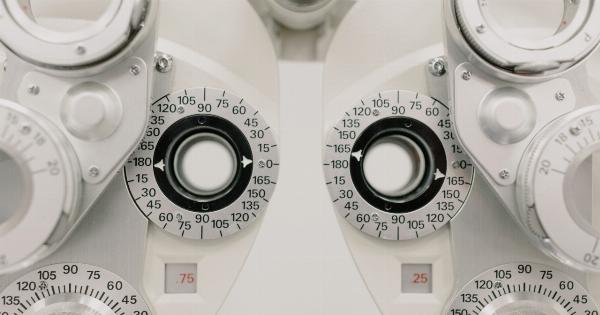According to a recent study conducted by a team of researchers, there seems to be a surprising connection between higher body weight and a lower risk of developing dementia.
The study, which was published in The Journal of Alzheimer’s Disease, sheds new light on the complex relationship between weight and brain health.
Understanding Dementia: A Growing Concern
Dementia is a general term used to describe a decline in mental ability severe enough to interfere with daily life. It is a progressive condition that affects memory, thinking, behavior, and the ability to perform everyday tasks.
Alzheimer’s disease is the most common type of dementia and accounts for approximately 60-80% of cases.
With an increasing aging population and limited treatments available, dementia has become a significant public health issue globally.
It poses a considerable societal and economic burden, as individuals affected by dementia require long-term care and support.
The Surprising Findings
The study analyzed data from over 2 million adults aged 40 and above, collected from various health databases. What surprised the researchers was the inverse relationship between body weight and dementia risk.
The study found that individuals with higher body mass index (BMI) had a lower risk of developing dementia compared to those with lower BMIs.
The findings held true even after considering other factors like age, sex, smoking habits, and existing medical conditions.
It contradicts the conventional wisdom that associates obesity with an increased risk of various health issues, including cardiovascular diseases, diabetes, and certain types of cancer.
The Possible Explanations
Scientists involved in the study have proposed several hypotheses to explain the counterintuitive findings. One theory suggests that fat cells might release substances that have a protective effect on brain cells.
These substances, known as adipokines, are involved in regulating inflammation and insulin sensitivity, both of which play a role in dementia development.
Another theory points towards the role of excess weight in preserving brain tissue.
It is believed that extra weight may act as a safeguard by providing reserves that the brain can draw upon when faced with the oxidative stress and inflammation associated with dementia.
The Importance of Further Research
While this study provides intriguing insights, it is important to note that it does not establish a cause-and-effect relationship between higher body weight and reduced dementia risk.
The researchers caution that more investigations are needed to comprehend the underlying mechanisms thoroughly.
Furthermore, it is worth noting that the study did not differentiate between different types of dementia.
It is plausible that the relationship between body weight and dementia may vary across different subtypes, such as Alzheimer’s disease, vascular dementia, or mixed dementia.
Implications for Public Health Policies
The study results are likely to raise questions about the current emphasis on weight management in public health policies.
With this unexpected association between higher body weight and lower dementia risk, there may be a need to reevaluate the messaging around obesity and strive for a more comprehensive understanding of the relationship between weight and health outcomes.
However, it is crucial to keep in mind that maintaining a healthy weight is important for overall health and well-being.
Obesity is still linked to an increased risk of numerous chronic diseases, including heart disease, stroke, and type 2 diabetes, among others.
Promoting a Holistic Approach to Health
Rather than solely focusing on weight, public health campaigns should adopt a more holistic approach that addresses various lifestyle factors associated with both obesity and dementia risk.
This includes promoting a nutrient-rich diet, regular physical activity, cognitive stimulation, social engagement, and adequate sleep.
It is equally important to ensure equal access to healthcare resources and education to empower individuals to make informed decisions about their health.
Tailored interventions and personalized care can contribute to reducing the risk of various diseases and improving overall well-being.
Conclusion
The study’s unexpected findings regarding the link between higher body weight and lower dementia risk have opened up a new avenue of research in the field of neurology and aging.
While further investigations are necessary to ascertain the mechanisms behind this connection, it highlights the complexity of the human body and the need for comprehensive approaches to healthcare.
Understanding the relationship between weight, brain health, and disease risk is crucial in formulating effective strategies for prevention, early detection, and management of dementia-related conditions.
By prioritizing holistic wellbeing and considering multiple factors, we can better promote healthy aging and support individuals in maintaining a high quality of life as they age.




























